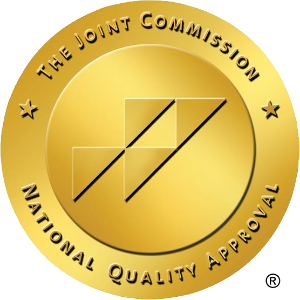In our last post we touched on what codependency is and how you can work to overcome it, especially when addiction is involved. Today we will be diving into this topic in even more detail.
Codependency is defined as excessive emotional or psychological reliance on a partner, typically one who requires support on account of an illness or addiction. This definition is purposely vague and open ended because codependency can look different for everyone and can be caused and overcome in many different ways.
Another term for codependency is relationship addiction. Whether you call it codependency or relationship addiction the attributes are the same. Someone in the relationship has an all consuming and excessive dependency on the relationship and there is often some level of addiction, abuse, or mental illness involved.
When people think of codependent relationships they often picture a romantic relationship but in reality any relationship can result in codependency. This includes family relationships, platonic friendships, and romantic relationships. All it takes for a relationship to be codependent is one person always considering the other person’s feelings over their own.
Regardless of the type of relationship there are always two roles in a codependent relationship, the caregiver and the person that needs care. These rolls do not necessarily have to be clear cut though, sometimes both people will take on a certain level of both rolls. These rolls become more and more blurry when one or both people have problems with addiction.
Now that you understand codependency it may be obvious that codependent relationships are not healthy, but they can be very difficult to identify and even more difficult to overcome once you identify them.
Signs of Codependency
Chances are you have observed a codependent relationship from the outside before. Identifying the signs of a codependent relationship is a great way to avoid getting into one yourself and it can also help you empower your friends or family to recognize they are in one.
So what are some signs of codependency that you can look for going forward?
Compulsive Attention
Compulsive attention is a tell-tale sign of codependency but it is often hard to recognize because you should want to be attentive and spend time with someone that you are in a relationship with. The problem arises when you or someone else is desperate to be with the other person to an extent that they will let other relationships deteriorate and even forgo things they want to do just to be with the other person.
Fear of Abandonment
In a healthy relationship you should have very few thoughts about the other person leaving. When codepency is present people have a borderline constant fear of their partner leaving them, and thus act in ways that they think will prolong the relationship. In doing this you or the codependent person will hide their own feelings, avoid bringing up things that are bothering them, and even support the other person’s bad habits.
Lack Of External Relationships
Perhaps the easiest identifier of a codependent relationship is a person’s lack of external support systems and relationships. The person in question will slowly start distancing themselves from their other relationships and also become more secretive about their codependent relationship to the other people they still trust.
Self Doubt
Doubting yourself or even starting to lose a sense of self is another common red flag that someone is in a codependent relationship. This is caused by two people’s personalities being completely intertwined to a point of one person not even considering how they feel about a certain thing, instead they just worry about how their partner feels about it.
Resentment
Resenting someone you are in a relationship with is a clear sign that you are becoming codependent. It is important to remember that resentment is a far stronger feeling than frustration or even anger. Both of those feelings can be a part of a healthy relationship, however a constant feeling of resentment in combination with a feeling of not being able to live without the other person is a clear sign of codependency.
Overcoming Codependency
If you have seen the warning signs and have accepted that you or someone you care about is struggling with a codependent relationship it is important to be proactive about solving the problem.
Solving this problem is a tricky endeavor because it takes cooperation from both people involved. To promote this cooperation and help guide you on your journey it can be very helpful to involve a professional therapist or program. It is best practice to do this with both people involved, but even seeing a therapist and attempting to address the problem on your own will work.
As you start addressing the issue of codependency there is a clear guide to how to progress.
Identify and Admit
It is impossible to fix a problem that you are unaware of. The first step in overcoming codependency is to admit you have a problem and hopefully get the other person involved to do the same. During this process it is vital that you do not beat yourself up or get down on yourself, codependent relationships can happen to anyone.
Separate Affection and Codependency
A key when trying to rid yourself of codependency is to learn how to separate affection and codependency. It is normal to want to support the other half of your relationship, but it is easy to take over the partner rather than remain supportive from the side. The only way to figure out this line is to talk openly and candidly.
Prioritize Yourself
Codepency comes from, and results in, a lack of prioritizing yourself. This does not mean you need to get excessively selfish, simply start thinking about the things you enjoyed doing before the relationship and start to revisit them. This could come in the form of revisiting old hobbies, reconnecting with old friends, or simply spending more time alone.
Learn What Healthy Love Looks Like
Healthy love will look different for every individual and every relationship. Finding healthy love will involve lots of give and take, but will end in finding a routine that results in a cycle of comfort and contentment.
What is Codependency? Recognize the Signs and Overcome It
As you can clearly see, identifying and overcoming codependency is no easy task, but it is possible. The key is to remain open minded, be able to forgive yourself and your partner, and be willing to move on if necessary.






